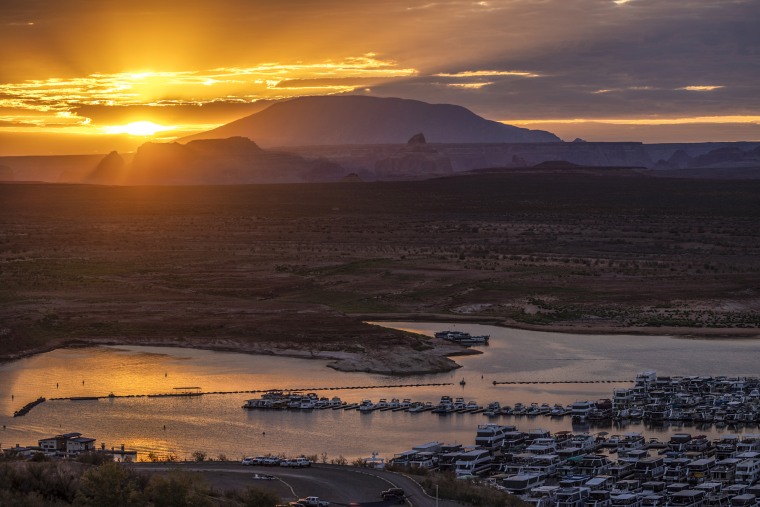WASHINGTON — The Supreme Court on Friday agreed to hear a dispute between the Navajo Nation, the Biden administration and three states over the increasingly important question of whether the tribe has the right to draw water from the Colorado River.
The justices will hear two appeals — one brought by the federal government and another by the states of Arizona, Nevada and Colorado in addition to several California water districts — that arise from the Navajo Nation’s efforts to assert rights to the river that flows alongside the reservation’s northwestern border. The tribe's land, the largest Native American reservation, is mostly in Arizona but also crosses into New Mexico and Utah.
The Biden administration and the three states appealed after the San Francisco-based 9th U.S. Circuit Court of Appeals ruled in favor of the Navajo Nation in February, saying it could sue the government for an alleged failure to carry out its duties on behalf of the tribe.
The dispute is over whether the government had a legal duty that the tribe can enforce in court. The tribe, which first signed a treaty with the United States in 1849, argues that under its agreements with the federal government that assured it would have access to land, it was assumed that the government also has a duty to provide necessary water.
Legal precedent is clear that "when the United States creates an Indian reservation, it also promises and reserves for the tribe the amount of then-unappropriated water necessary to fulfill the reservation’s purposes," the tribe's lawyers say in court papers.
Access to water in the arid West has always been a contentious issue and is set to become even more important because of the impact of climate change. Water from the Colorado River has been allocated through a compact between states dating back to 1922 and has been subject to litigation almost ever since, including a case brought against California and several of its water districts.
The Navajo Nation can access water from other sources, including the San Juan River, a tributary of the Colorado River, but the tribe says that is not enough. Many tribal members do not have access to running water and rely on wells and other localized water sources. The tribe originally sued the federal government in 2003 seeking access to the main branch of the Colorado River, with the litigation dragging on ever since. In separate litigation the tribe has fought for access to the Little Colorado River, another tributary of the Colorado River.
The Biden administration, represented by Solicitor General Elizabeth Prelogar, says in court papers that the Supreme Court has repeatedly ruled that a tribe cannot sue to enforce an obligation it believes the federal government has unless it can point to a specific law or regulation that authorizes it.
“Nothing in the supposed sources the court of appeals cited imposes any specific and affirmative duties on the federal government on behalf of the Navajo Nation with respect to the water of the Colorado River,” Prelogar wrote.
The states, meanwhile, say that if the appeals court ruling is left in place, it would negatively impact them by imperiling existing water rights agreements at a time when water is already scarce because of longstanding drought conditions.

